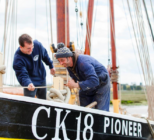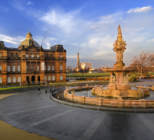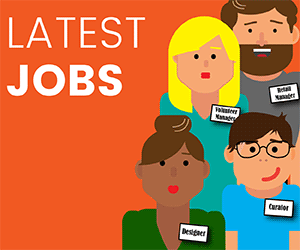What are the main changes to be found in the new Strategic Funding Framework in regards to how heritage will be funded?
You will notice we have changed our name – we are now The National Lottery Heritage Fund. Research has shown us that most people don’t understand the transformative effect the National Lottery has had over the past 25 years. We want this to change and our new name – making an explicit link with the National Lottery – is part of this.
Devolution
Another change we are bringing in is a further devolution of funding decisions across the UK. For the first time all funding decisions up to £5m will be decided by committees and senior staff in Scotland, Northern Ireland, Wales and three geographical areas in England – North; Midlands & East; and London & South. This will amount to around 80% of The National Lottery Heritage Fund’s annual budget, compared with around half under the last strategic framework.
Major awards over £5m will be decided by the Board of Trustees through two competitions held in 2020–21 and 2022–23. We are also bringing in a simpler, streamlined and more efficient funding system. Most grants applications will now come through National Lottery Grants for Heritage – an open programme for any type of heritage project from £3,000–£5m.
Other changes include a particular focus on nature, communities, and on ensuring everyone is able to enjoy heritage – three top priorities for people who responded to our consultation; new models of investment, including loans and partnerships; and investment and support to help heritage organisations to be more financially sustainable.

What were the reasons behind the HLF making these changes and why now?
In 2018-2019 we have come to the end of the previous five year funding framework, so we are now setting out our plans for the next five years. We already have a new corporate strategy which follows a positive Government review of our work, and have consulted with more than 13,000 people, including National Lottery players and heritage organisations. So these changes set out how we are going to deliver on these commitment and priorities.
25th year
We are also now in the 25th year of the National Lottery and there’s a huge amount to be proud of – a transformation in how we care for and interact with our heritage brought about by the £8bn we have distributed so far. But it’s a challenging time, with pressure on National Lottery income and a big reduction in other sources of funding. So as well as looking at how best we can support heritage projects for the next five years, we should all take a moment to stop and think about the National Lottery at 25, why we value it so much and what we can do to support it.
How will the changes impact prospective funding bids from heritage organisations in terms of what the HLF is looking for in applications?
Right now we have more demand for our funding than ever, so first of all it’s essential that applications are of the highest possible quality. Consideration of whether heritage is at risk will remain an important factor in our decision-making, although it should be noted that we take a broad definition of what we mean by ‘at risk’ – not just official registers but also things like memories and traditions at risk of being lost when people die. We have a new inclusion outcome ‘a wider range of people will be involved in heritage’ which all projects we support will need to deliver.
Environmentally friendly
Also, every project we support will need to be environmentally friendly; these two new requirements will be proportionate to the size of the grant. We will encourage innovation and income diversification in applicants’ business models, looking for them to build capacity, skills and resilience. Occasional time-limited heritage campaigns will be introduced to support areas including organisational resilience and building digital capabilities. More details on these will be announced during 2019.
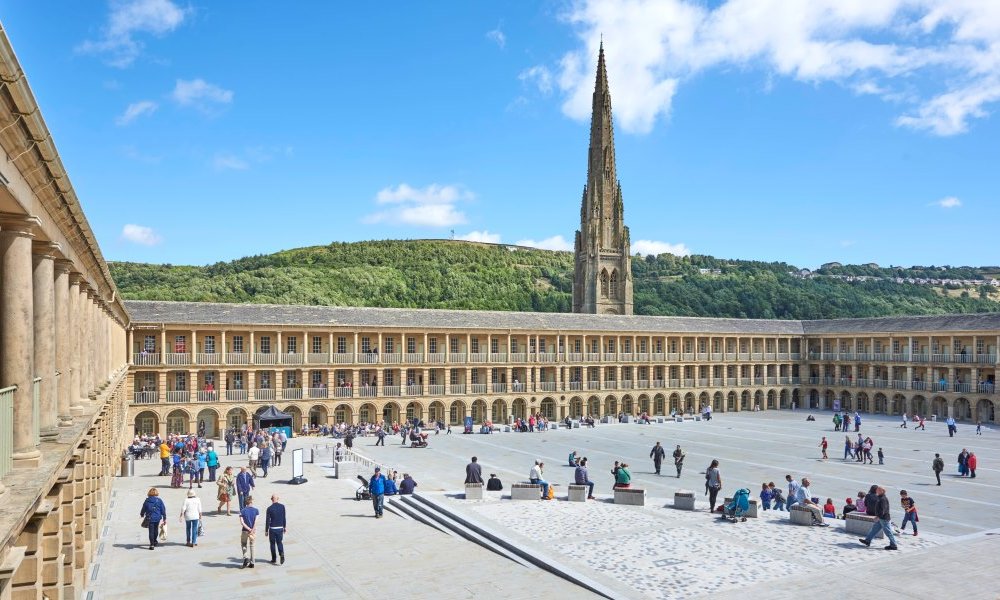
What will be the main benefits of the new Strategic Funding Framework?
The new framework will support our ambition to inspire, lead and resource heritage – the three main asks of us following our consultations in 2017 and 2018. We will be making more decisions on funding locally and focusing on the heritage that really matters to people. Joint funds to deliver strategic initiatives in partnership with other organisations, such as the Future Parks Accelerator partnership with the National Trust, will enable us to pool resources and expertise. With social investments such as impact funds and loans we will introduce new ways to support heritage, initially on a relatively small scale.
Simplified the application process
To help applicants we have simplified the application process. Funding will now be awarded through a single open programme for all types of heritage and application forms will be shorter and clearer, particularly for smaller grants which will have fewer requirements than before. Our online application system will be improved and better digital guidance will be available. This will help organisations applying to us for the first time, who will become a priority for our support. We will be able to give quicker funding decisions to more applicants by increasing the upper limit for single-round awards from £100,000 to £250,000.
We are also introducing an ‘expression of interest’ stage for grants of £250,000 to £5m. We were asked to do this in responses to our consultation – it’s a way to manage the very high levels of competition we’ve been experiencing in recent years, and to give applicants an indication of the potential of their project to receive funding before they put a lot of work into a full application.

How much total National Lottery Funding is available to heritage over the next 12 months, and how does this compare to previous years (are we seeing significant funding cuts)?
We plan to award around £1.2bn in total during the five-year life of the Strategic Funding Framework, based on current forecasts. We will be announcing next year’s budget from April in our Business Plan, later this spring. Since 1994, £8bn has been awarded to more than 44,000 heritage projects. There has been pressure on National Lottery income in recent years, which is why it bears repeating that applications need to be of the highest possible quality to remain competitive.
What are the main challenges facing the HLF over the next few years and how do you plan to overcome them?
Over the next five years we want to demonstrate and champion the impact and benefits to society that heritage achieves, and for heritage to be more widely recognised as a vital contributor to the economy, social cohesion, better places and individual wellbeing.
It’s essential that the transformative effect of the National Lottery is better-understood. We have a fresh new identity and name – The National Lottery Heritage Fund – which is designed to make a closer link between people who buy National Lottery tickets and the difference they make through funding heritage. Alongside this, we want every organisation awarded funding to think about how National Lottery players will be thanked, acknowledged and invited to participate in their work.
After a decade of reduced public spending, the financial environment for heritage remains challenging. We want to make National Lottery players’ money work even harder. We are going to trial some new models of investment, including loans and partnerships, which we hope will attract others to invest alongside us.
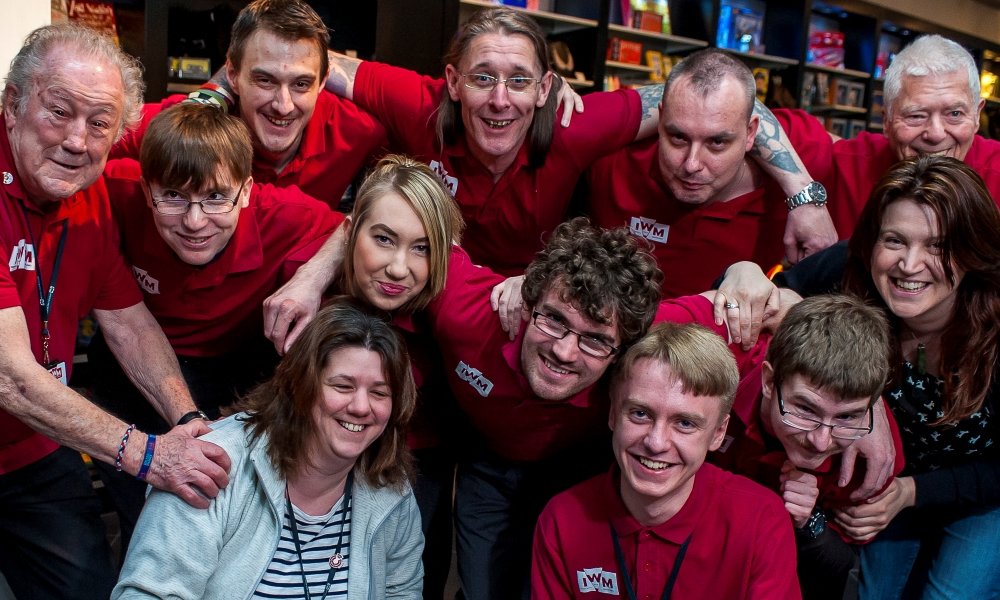
What have been some of the HLF’s major achievements and what are some of the key targets in the coming five years?
We have six strategic objectives in the new framework, to: bring heritage into better condition; inspire people to value heritage more; ensure that heritage is inclusive; support the organisations we fund to be more robust, enterprising and forward looking; demonstrate how heritage helps people and places to thrive; and grow the contribution that heritage makes to the UK economy.
Each week, National Lottery players raise around £30m for good causes. In total, almost £40bn has been raised and awarded to more than 535,000 individual projects (an average of 190 lottery grants in every UK postcode district).
£8bn has been awarded
National Lottery funding has helped our wonderful buildings, iconic landscapes, cultural memories and traditions and native species not just survive, but thrive. £8bn has been awarded to more than 44,000 heritage projects, including the V&A Dundee; Halifax Piece Hall; Belfast’s Titanic Quarter; 2,200 projects commemorating the First World War Centenary; Hull City of Culture; more than 950 public parks; the landscape and wildlife at the White Cliffs of Dover; St Fagans National Museum of History; Middleport Pottery; SS Great Britain; and Portsmouth Historic Dockyard.
National Lottery funding has directly removed more than 250 buildings from national risk registers and over 75% of Skills for the Future apprentices (1,300) have secured jobs in the heritage sector – supporting the sector and the economy. And it’s fair to say these examples are just the tip of the iceberg.
Over the next five years, The National Lottery Heritage Fund will build on this wealth of expertise to inspire, lead and resource the UK’s heritage. We will be striving to be innovative with new ways of funding, make heritage inclusive, create jobs, bring economic prosperity and improve people’s lives right across the UK.
There will be a free M+H Advisor x Tricolor Associates webinar on 11 April from 10.30am to discuss the National Lottery Heritage Fund’s new Strategic Funding Framework. Book your place and we will be in touch with more information.
Free M+H Advisor x Tricolor Associates webinar
Join us on Thursday 11 April, 10.30am – 11.15am for a FREE webinar hosted in partnership with heritage consultants and funding experts, Tricolor Associates, to discuss the opportunities and challenges that will be presented by the launch of the National Lottery Heritage Fund’s new Strategic Funding Framework.
Hear creative ideas and suggestions on the process of applying.
Ensure you are putting your organisation ahead of the game by putting together great applications to develop your exceptional projects.
Book your place and we will be in touch with more information.
Quick Facts on NLHF's Strategic Funding Framework 2020-2025
The Funding Portfolio will comprise:
National Lottery Grants for Heritage – an open programme for any type of heritage project from £3,000–£5 million.
Heritage funding campaigns designed to fulfil strategic needs or funding gaps. The first two campaigns are will launch in 2019, focusing on: helping organisations build their capacity and organisational resilience; and helping to build digital capabilities.
Joint funds to deliver strategic initiatives in partnership with other organisations, such as the Future Parks Accelerator partnership with the National Trust.
Social investments such as impact funds and loans.
Two rounds of major grants of over £5 million in 2020–21 and 2022–23.
Which will see:
A major focus on inclusivity, ensuring everyone is able to enjoy heritage;
Investment and support to help heritage organisations to be more financially sustainable;
New models of investment, moving beyond grants to include loans and partnerships, designed to attract others to invest money alongside the National Lottery;
Simpler, streamlined and more efficient funding
More support for commercial, sustainable approaches to tackling heritage that’s in danger of being lost;
A requirement for every heritage project that receives funding to be environmentally friendly; and
Greater engagement and support to help 13 deprived communities that have in the past been less successful securing funding.


